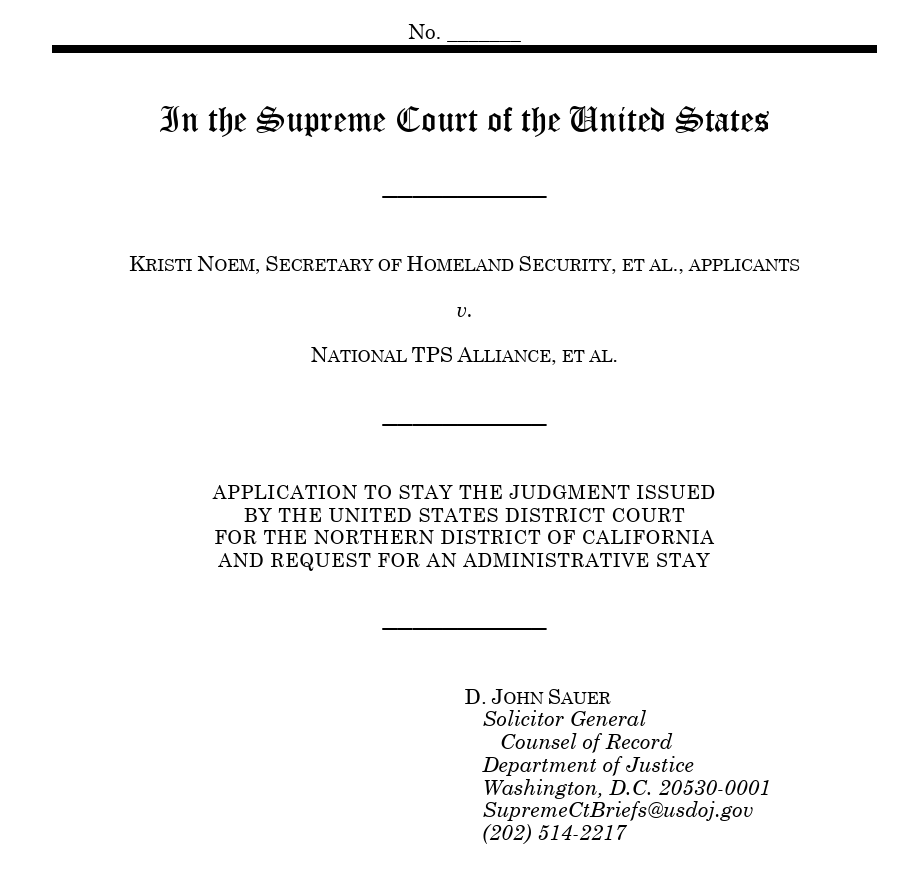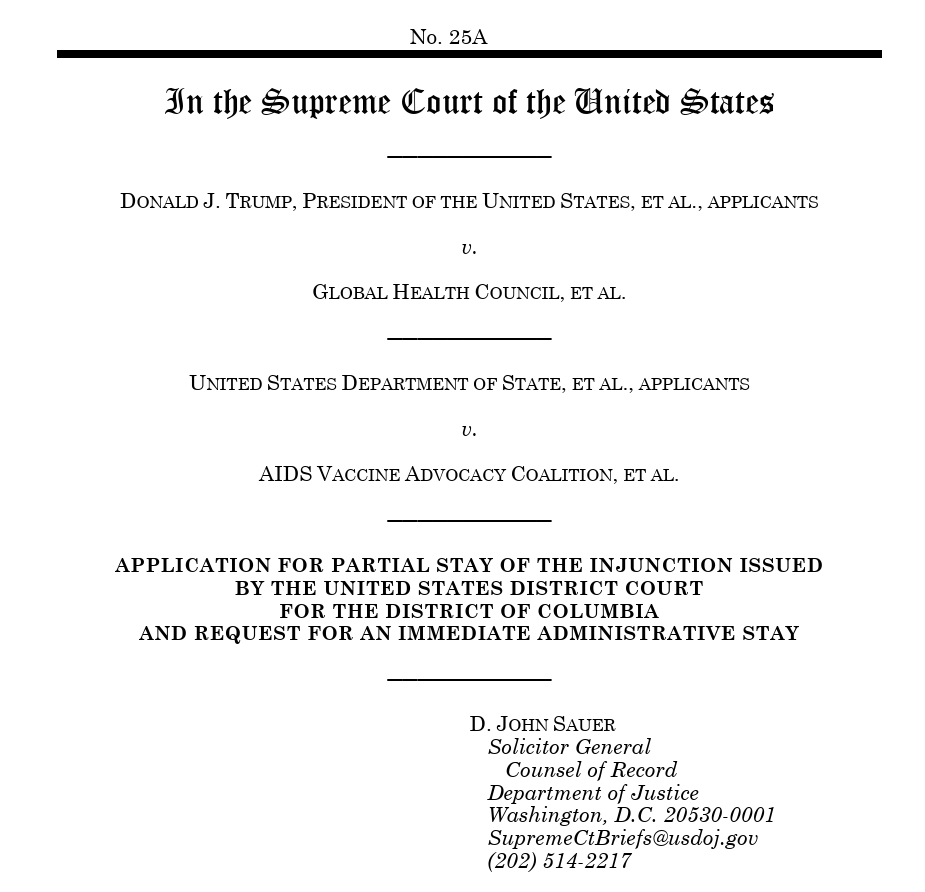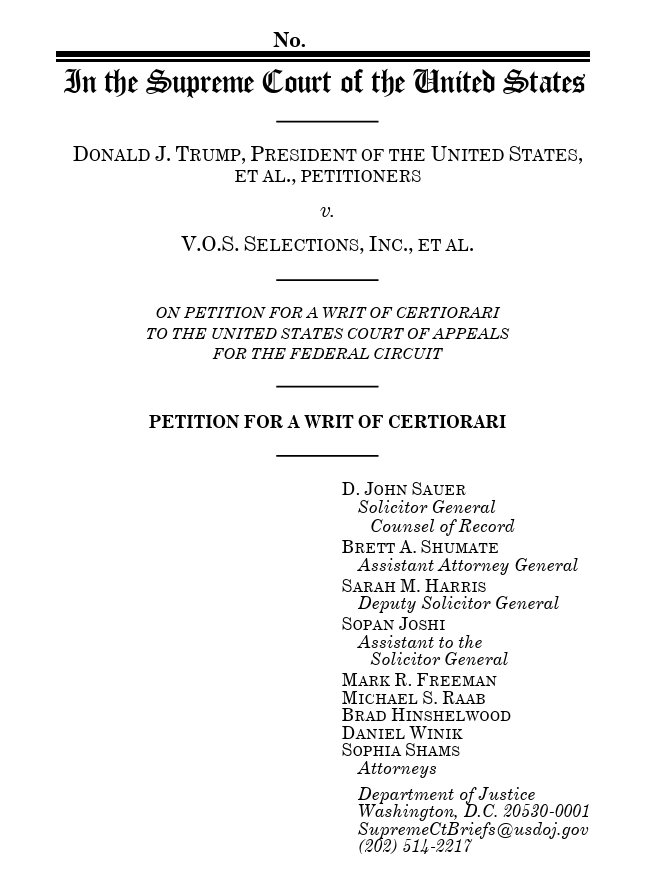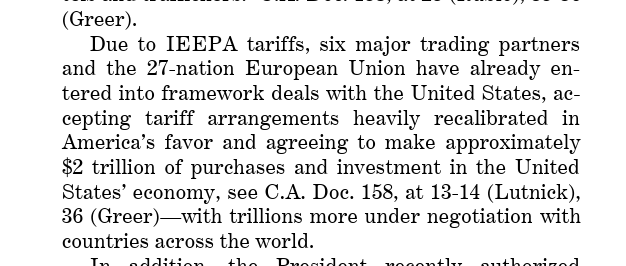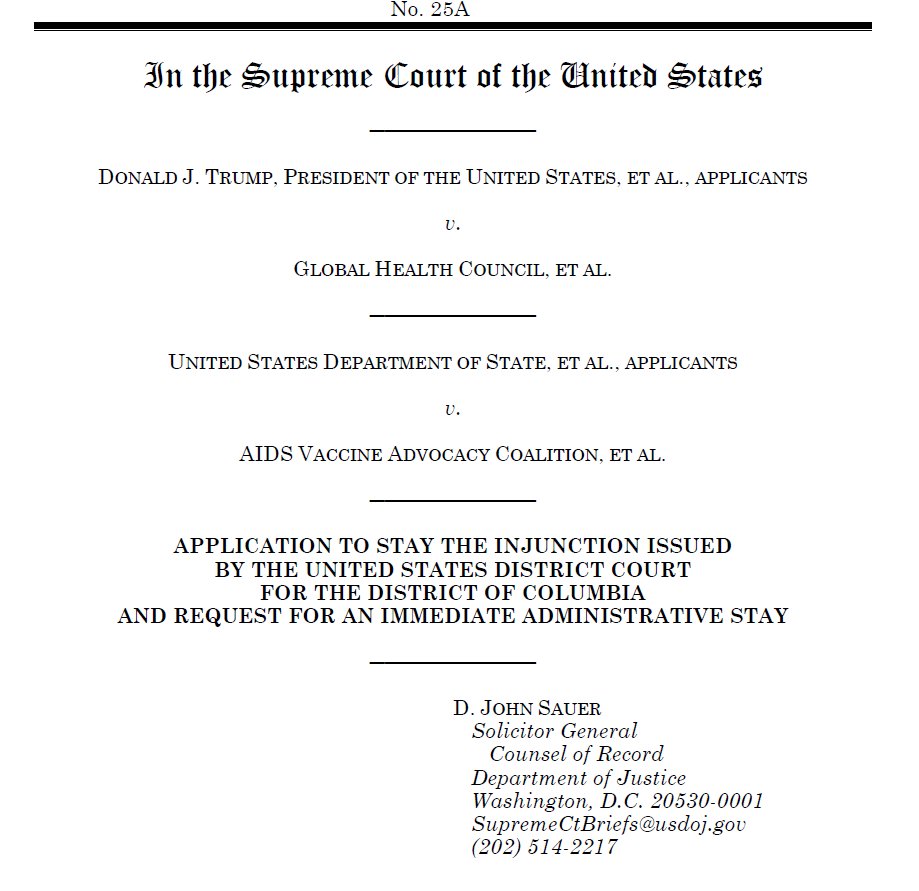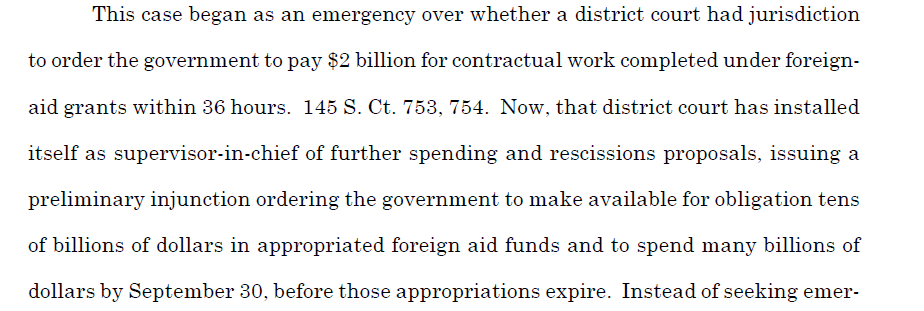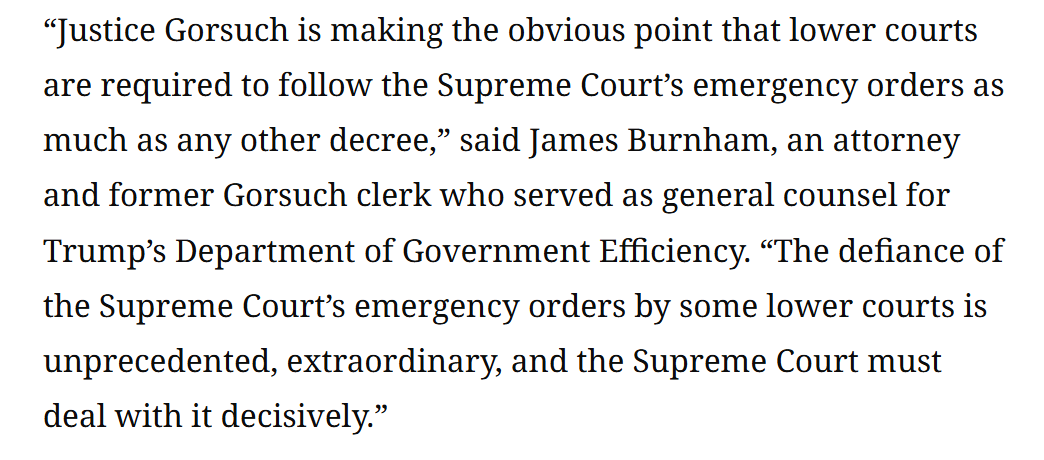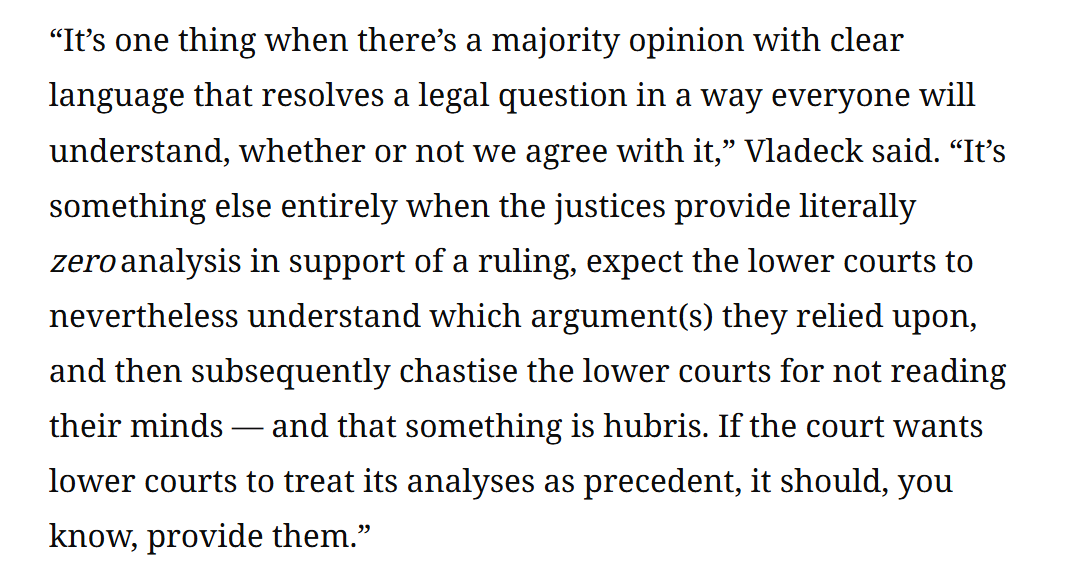Another win for @TheJusticeDept before the Supreme Court--this time on whether district courts can enjoin the termination of grants that conflict with the Administration's anti-DEI policies. Lots of interesting opinions, worth a brief discussion. 1/
https://twitter.com/joshgerstein/status/1958631914837090738
First, the ruling is correct and consistent with previous orders the Court has issued on the emergency docket. As we've discussed before, people who claim the government owes them money have to go to a special court to sue for money. They can't get TROs or injunctions. 2/
This is case marks yet another example of lower courts defying the clear import of the Supreme Court's emergency rulings. As SG Sauer explained in his application. 3/ 
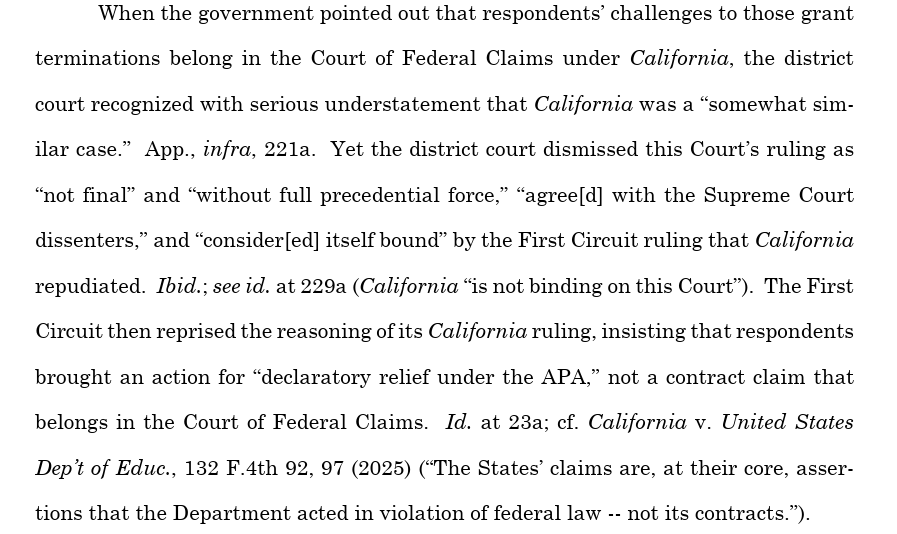
Not that it matters from a legal perspective, but some of the grants here are as outlandish as you'd think. I don't even know what the second or third ones mean. 4/ 
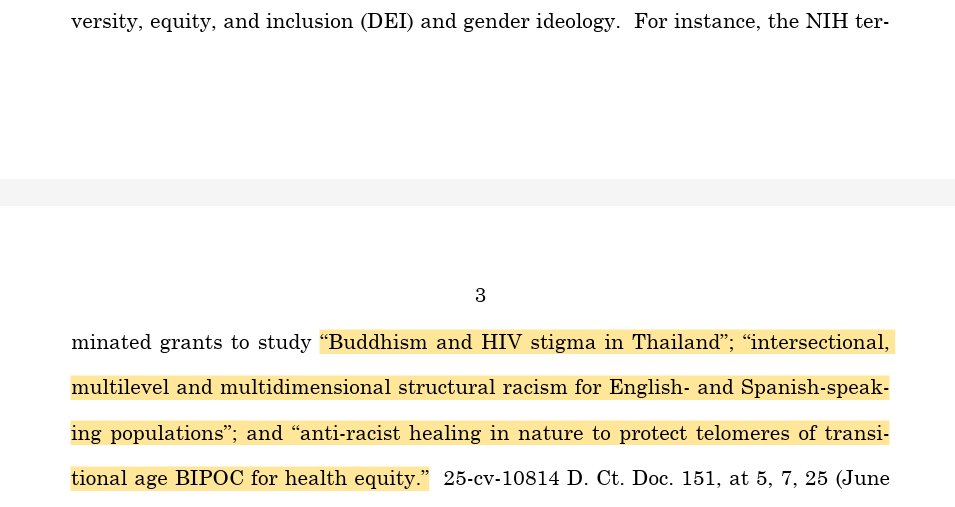
The case is also another example of lower courts holding that elections cannot result in new policies. Abandoning leftwing policies is "political," as if there is something bad--instead of virtuous--about the democratic process setting funding priorities. 5/ 
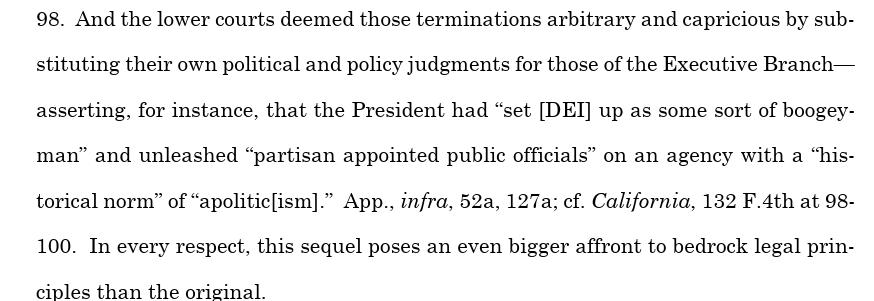
It is unsurprising the Justices intervened. Clear claims-channeling principles, the Court's own recent decisions, and enforcement of the vital principles of vertical stare decisis all demanded as much. But the opinions add interesting color. 6/
First, I am surprised the Chief Justice voted to deny the application and am not surprised that Justice Barrett only voted to grant in part. The latter is understandable (and means little as a practical matter), as Justice Barrett explained in characteristically cogent prose. 7/
Lets discuss the Chief first. This case differs a bit from typical grant-termination cases insofar as the agency issued internal guidance the essentially said no more funding for DEI. There's a plausible argument that litigants can challenge such guidance documents in court. 8/
In the Chief's view, this may pull the grant terminations into federal court along with the guidance challenge. But I am not sure why guidance being challengeable in court under the APA would supersede channeling of separate grant terminations to the court of claims. 9/
Nor does the Chief seem locked in. Rather than expound his reasoning at length, he largely ties his vote to the Government's arguments in district court. Perhaps he will revisit this when the Court hears the case on the merits. 10/ 
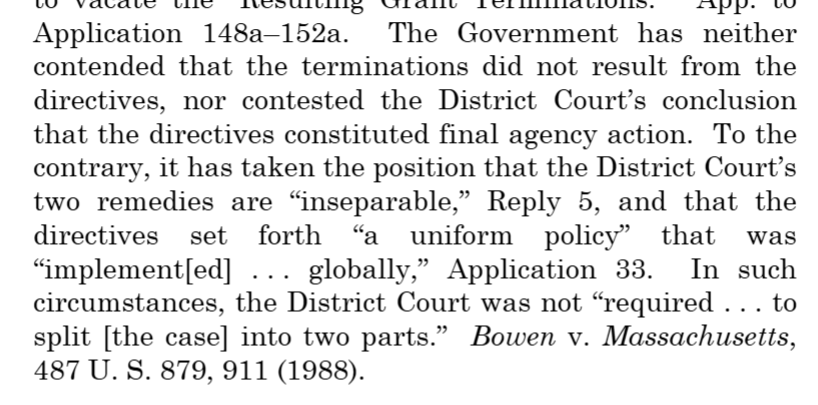
What about Justice Barrett? She agrees with the Chief that you can challenge the guidance documents in court under the APA, but says (correctly, I think) that claims for grant money have to go to the court that congress said hears claims for money. 11/ 
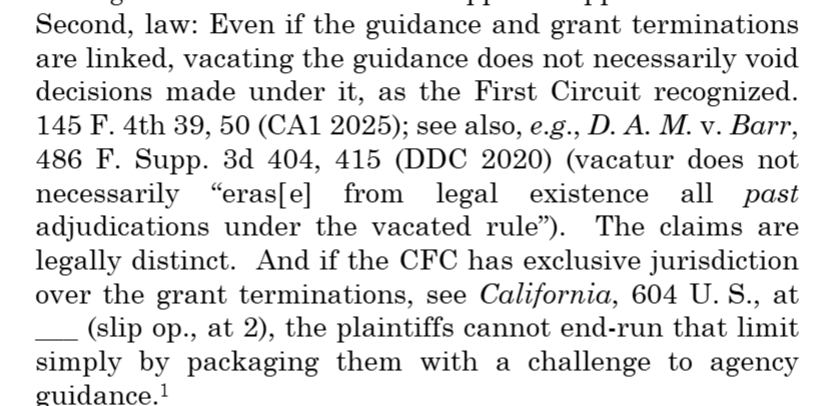
Justice Barrett's vote on the guidance has little practical effect; jilted grantees still must go to the Court of Claims and cannot get their money via a PI; her words below. While she departs from Justices Thomas Alito Gorsuch and Kavanaugh, it is a small departure. 12/ 
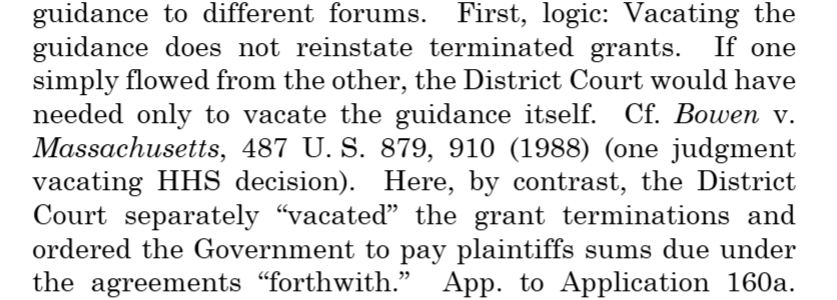
Justice Gorsuch (for whom I clerked) says what I have been hoping the justices would say for some time--and what I hope the full Court says soon--namely, the lower courts have to follow the law. And in our vertical judiciary, that means what the Supreme Court decrees. 13/ 
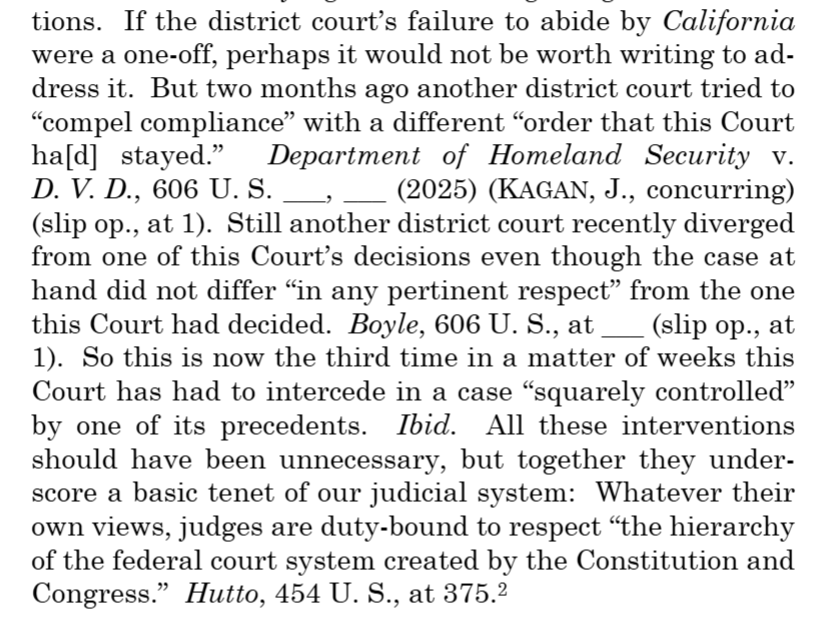
Justice Kavanaugh, for his part, explains why the justices are obliged to rule on stay applications. And of course they are. Lower courts issue interim relief and it would be absurd for the most important Court to not do so--particularly in cases involving the Executive Branch. 14/
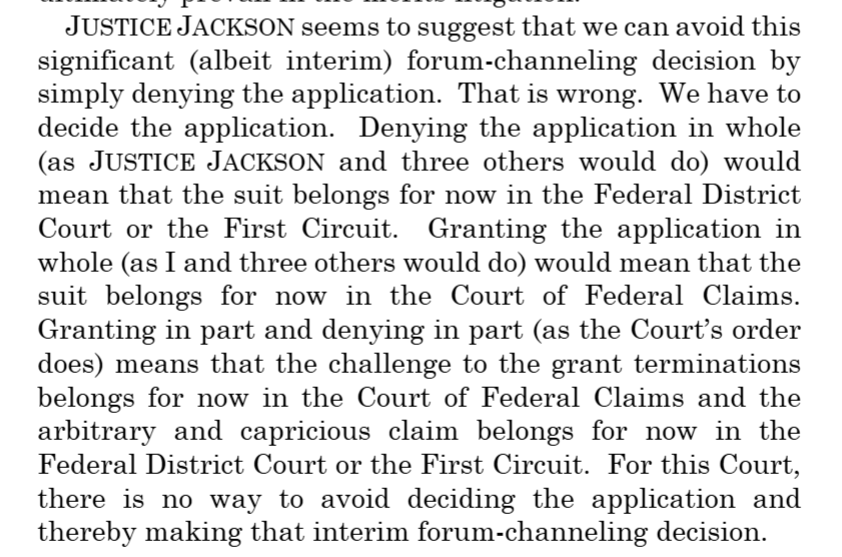
Finally, Justice Jackson weighs in (solo) with her characteristic understatement, advocating for a regime in which forum-shopped district courts routinely supplant the elected President. 15/ 
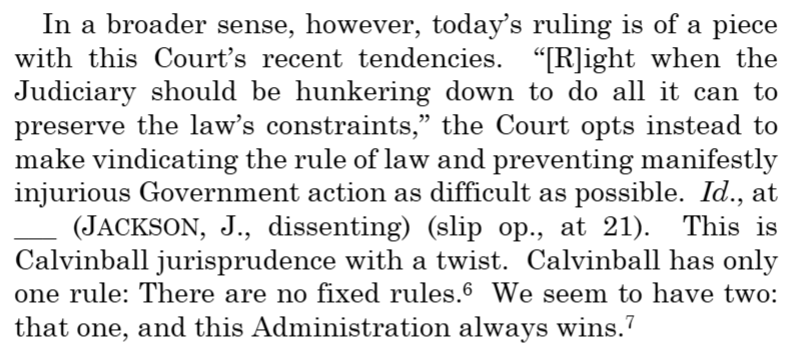
Bottom line. The emergency docket is vital to ensuring the President can actually be President, and the Court is enforcing the law in the face of recalcitrant lower courts. We will likely see more of this, though I hope (naively?) that lower courts may someday get the message. /end
Oh also, the opinion is linked in the original nested tweet. For true gluttons, here is the SGs stay application: supremecourt.gov/DocketPDF/25/2…
• • •
Missing some Tweet in this thread? You can try to
force a refresh


